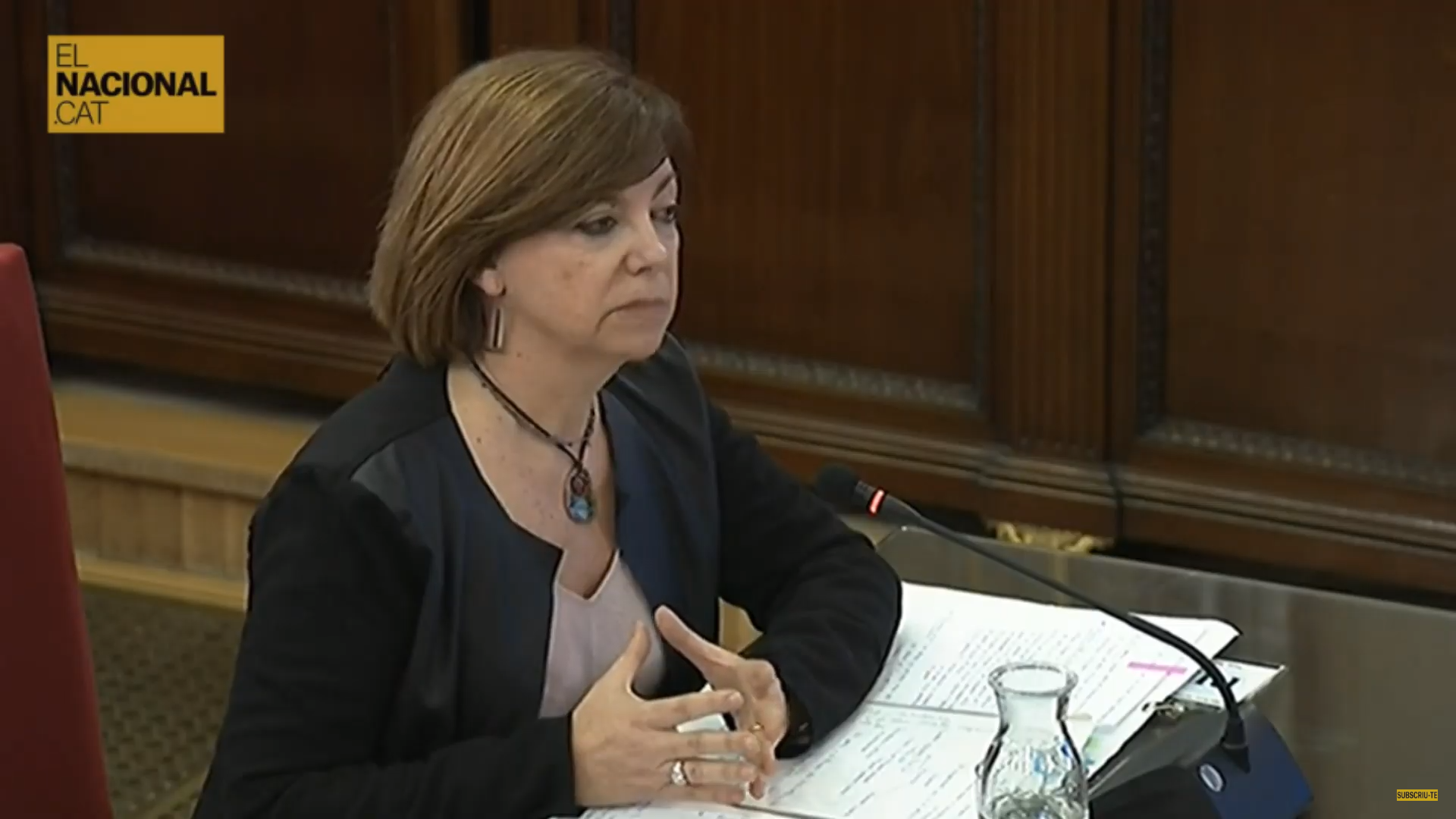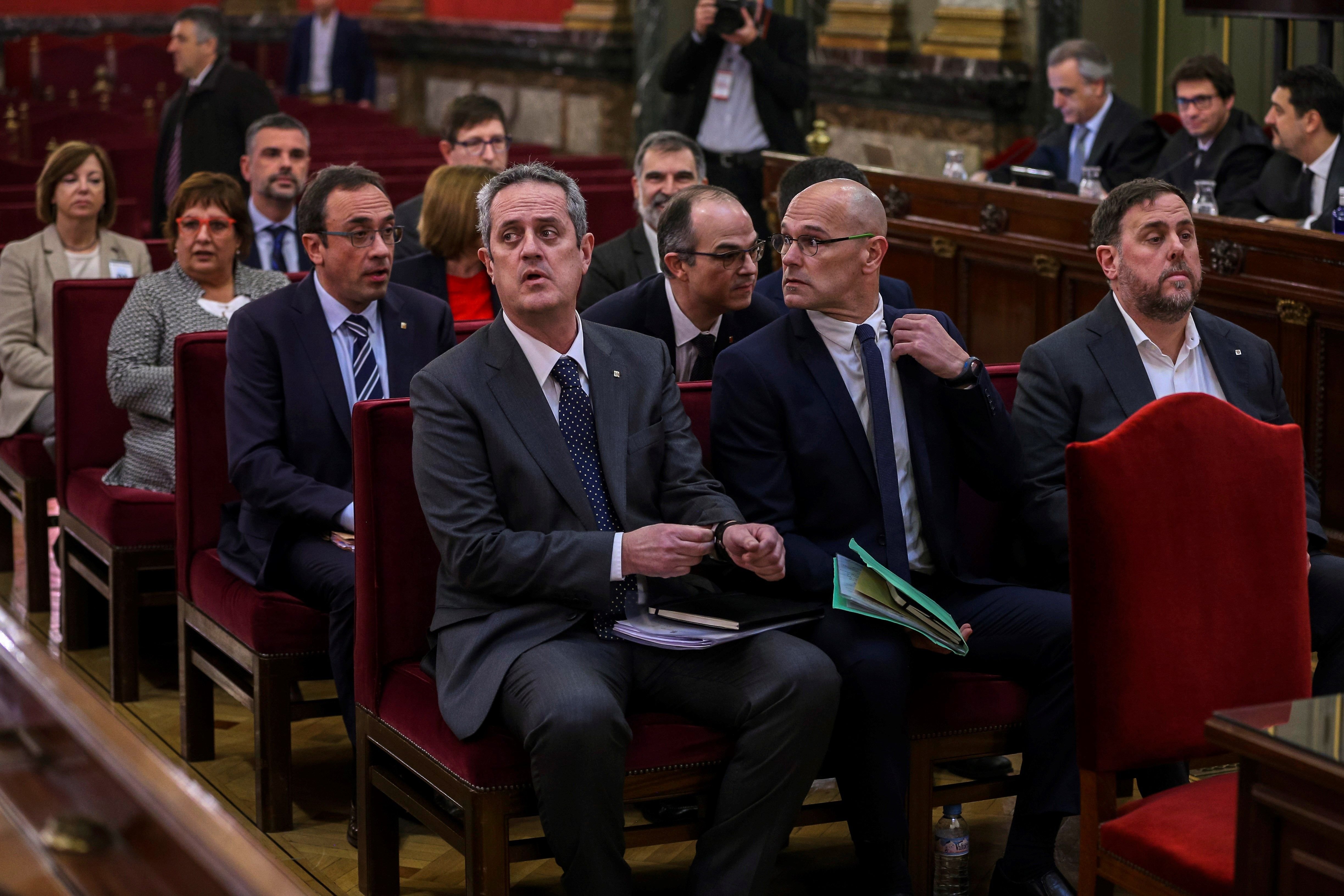Spain's Constitutional Court has ruled that the country's Supreme Court was the legitimate organ to try the pro-independence Catalan leaders for the events of the 2017 referendum and independence process. The confirmation has come through its ruling on the appeal by the former Catalan government minister, Meritxell Borràs, although there are others still to be decided. The decision was unanimous and backs the Supreme Court having full powers in the case of the independence leaders. It marks a closing of ranks in Spanish justice on the issue, since it asserts that under the "authority conferred on the court by the Constitution itself" it has decided to dismiss the appeal lodged by Borràs on October 14th, 2019.
Sets a precedent
In the 2019 Supreme Court trial of the 12 pro-independence leaders, the former governance minister Borràs was convicted of an offence of disobedience, and was fined 60,000 euros, but not imprisoned. However, the ruling today, signed by judge Cándido Conde-Pumpido, former Attorney General under the Socialist government of José Luis Rodríguez Zapatero, sets a precedent.
The decision, aligning the Constitutional Court with the Supreme Court in the case of Meritxell Borràs, creates doctrine that can be extended to the other convicted Catalan leaders. The argument that the Catalan High Court (TSJC) was the court with the competence to judge the pro-independence politicians and activists has been rejected. In this way, the Constitutional Court extends the decision to all the amparo appeals that it may receive in its role as guarantor of the constitution, and thus, one of the main arguments used in the defence of the political prisoners from day one as grounds to demand the annulment of the entire case, has been sunk as far as Spanish justice is concerned.

Meritxell Borràs testifies as a defendant in the Supreme Court.
The one-page press release from the Constitutional Court states that the competence of the Supreme Court has an "unquestionable explicit legal basis" and as its only additional detail notes that at the time of the deliberation, the only judge in the 12-member court who did not take part was Antonio Narváez, who abstained. In 2017 Narváez said in a speech that the independence process was a "covert coup d'etat". The full ruling made by the remaining 11 judges will be released within a few days.
Spanish judges at odds with Belgian ruling
One of the justifications which Borràs used to present the appeal was that the Belgian judiciary had already reprimanded the Supreme Court for declaring itself competent to try the leaders involved in the referendum without an explicit legal basis. This was part of the Brussels Court of Appeal's ruling which refused the Spanish request for extradition of former Catalan culture minister Lluís Puig from his exile in Belgium. And the Brussels court also took issue with the Supreme Court in considering that the Spanish organ had violated the jurisprudence of the European Court of Human Rights.
Belgian justice considered that Lluís Puig's case should not have been heard at the level of the country's highest criminal court, since at the time when he was tried, he was not covered by the partial immunity granted in Spain to political office holders. However, today's ruling in Madrid implies that, according to Spanish justice, Puig, like Dolors Bassa who had a similar situation, had to be tried with the other pro-independence leaders.
Borràs's next step after this result is to appeal at European level: with the Spanish judicial route now exhausted, a case can now be made to the human rights court in Strasbourg.

